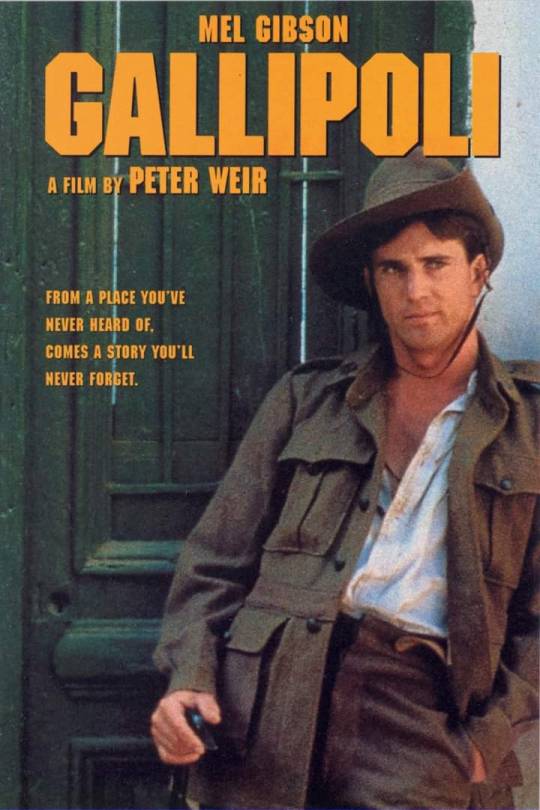#gallipoli
Text
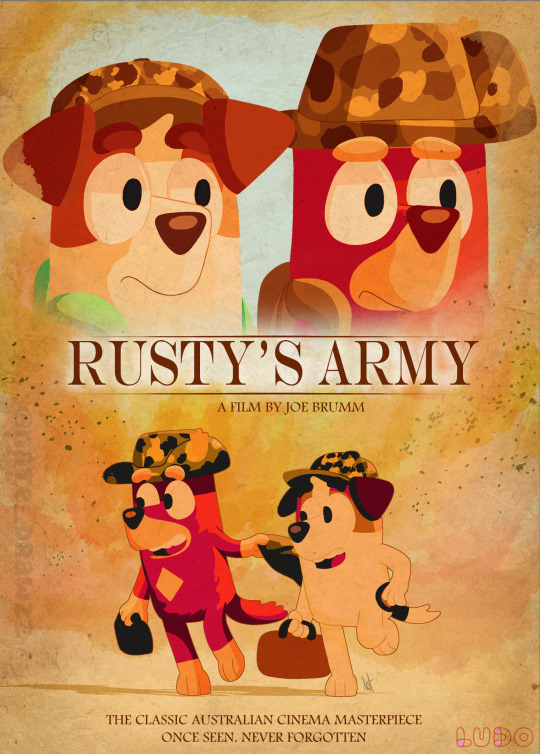
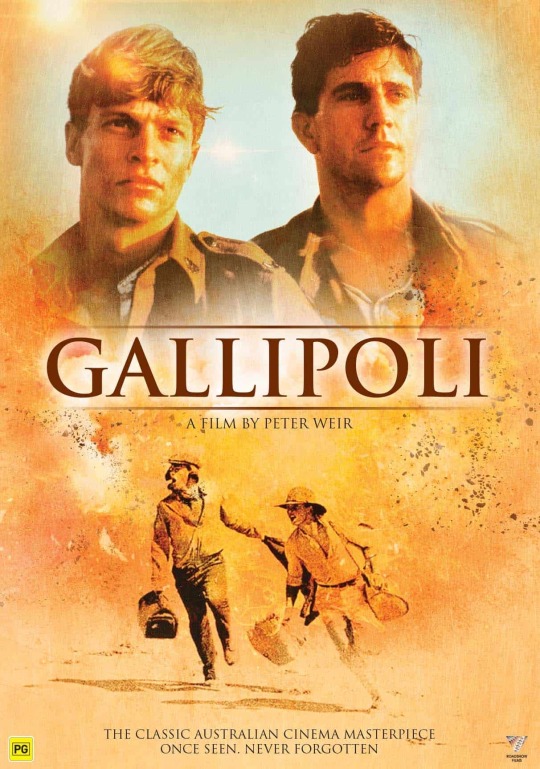
“How fast can you run? As fast as a greyhound. How fast ARE you gonna run? As fast as a greyhound!”
#bluey#bluey fanart#fanart#jack bluey#rusty bluey#gallipoli#parody#I still can believe that Bluey referenced#this sad ass movie I’ve been obsessed#with it ever since I saw it
174 notes
·
View notes
Text




44 notes
·
View notes
Text
anzac day -> lest we forget
I would like you to do me a favor, and try to picture a scene in your head. Attempt to picture a land of mud and heat, blistering your skin as you merely stand. Head to toe in thick uniform, you and your troops stand in preparation for the landing. Imagine the moment you receive the order, sent to run over those muddy hills, bullets flying your way as they seek to kill.
This is what the landing of Gallipoli felt like for the 16,000 ANZACS on the 25th of April, 1915. The conditions of Gallipoli of course grew worse over the time of the campaign, with the heat or cold, disease, unsanitary conditions, terrible food and of course, the daily deaths of fellow soldiers taking its toll.
I figure I ought to explain what ANZAC means before anything else. ANZAC stands for Australian and New Zealand Army Corps, and was the title given to the armed forces who fought in the Gallipoli campaign during World War 1.
ANZAC Day is held on the 25th of April, the same day the ANZACS landed in Gallipoli that fateful morning. 2,000 soldiers were killed or wounded upon the first day, and those who weren’t killed were left weak.
The Gallipoli campaign lasted until the eighth of January, 1916. A total of 8,159 ANZAC troops lost their lives. As sick as it sounds, the death toll isn’t very high. Gallipoli was important for many reasons, including that it was the first major amphibious assault in modern warfare. But it’s also so important because it was seen as a failure, and yet the troops kept going. The soldiers were seen as the bravest of them all.
ANZAC Day is held all over Australia and New Zealand, ceremonies and marching alike to remember the fallen and the serving. We do many things to commemorate the soldiers fallen and alive, some being the Dawn Service and the other numerous marching and ceremonies of course.
Another thing about ANZAC Day are the flowers. Most notable of these are poppies, famous among Australians and New Zealanders for ANZAC Day. Poppies were among the first flowers to grow back on the Gallipoli front, and ever since then they have been a symbol of hope and remembrance for the ANZACs. Another is rosemary, which means fidelity and remembrance. Many people will be wearing poppies and rosemary on ANZAC Day, a sign of their remembrance to the fallen and those who served.
This is a poem by John McCrae called 'In Flanders Fields'.
In Flanders fields the poppies blow
Between the crosses, row on row,
That mark our place; and in the sky
The larks, still bravely singing, fly
Scarce heard amid the guns below.
We are the Dead. Short days ago
We lived, felt dawn, saw sunset glow,
Loved and were loved, and now we lie,
In Flanders fields.
Take up our quarrel with the foe:
To you from failing hands we throw
The torch; be yours to hold it high.
If ye break faith with us who die
We shall not sleep, though poppies grow
In Flanders fields.
Something that happens here is we play a song called ‘The Last Post’, which is then followed by a minute of silence. During this minute of silence, we remember the fallen, dead, wounded and survived.
It would be a great favor to me if you could reblog this, no matter if you're Australian or New Zealand. No matter where you're from. ANZAC Day is about remembering war, the fallen and the survived.
Lest we forget.
#australia#new zealand#anzac#anzac day#poppies#rosemary#lest we forget#australian and new zealand army corps#gallipoli#gallipoli campaign#aussie#the last post#Spotify
28 notes
·
View notes
Text

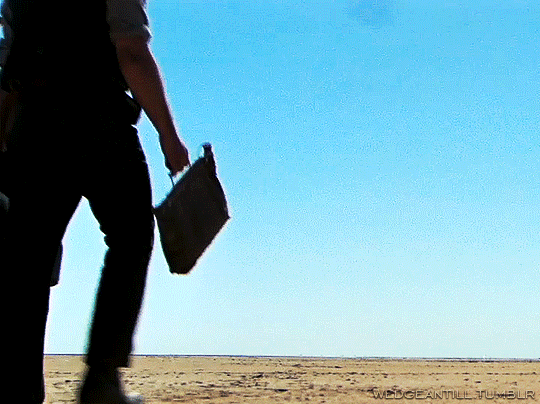



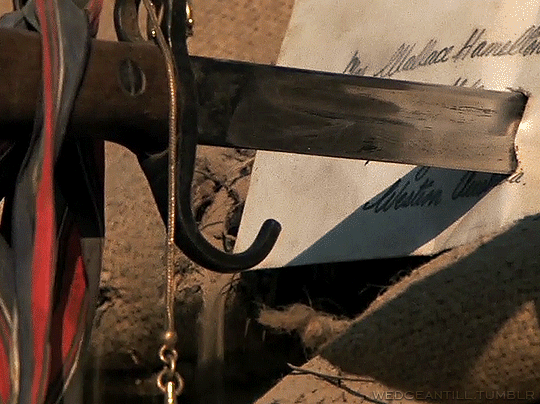


Gallipoli (1981)
#gallipoli#egyptian pyramids#filmedit#weloveperioddrama#worldcinemaedit#filmgifs#perioddramaedit#mine#userrobin#throwbackblr#cinemapix#userscenery#dailyflicks#tuserkers#landscape#userkraina#userteri#userel#nessa007#moviegifs#cinematv
56 notes
·
View notes
Photo


....tired of acting as though I have something to hide
#photographers on tumblr#tamurakafkaposts#self portrait#once upon a time in italy#summer in italy#Gallipoli
134 notes
·
View notes
Text

“In a single wave of meaning the triumphant purity of being.” – Boris Pasternak
“In un’unica onda di significato la trionfante purezza dell’essere.” – Boris Pasternak
© Kevin Charles Ward
#kevincharlesward#photography#kevinward#fujixt1#blackandwhite#streetphotography#italy#salento#puglia#gallipoli
24 notes
·
View notes
Text

An Anzac Day tribute to the fallen soldiers of Australia & New Zealand
#ANZAC Day#Australia#New Zealand#WWI#1916#Gallipoli#armed forces#Commonwealth#British Empire#25 April 2023
116 notes
·
View notes
Text
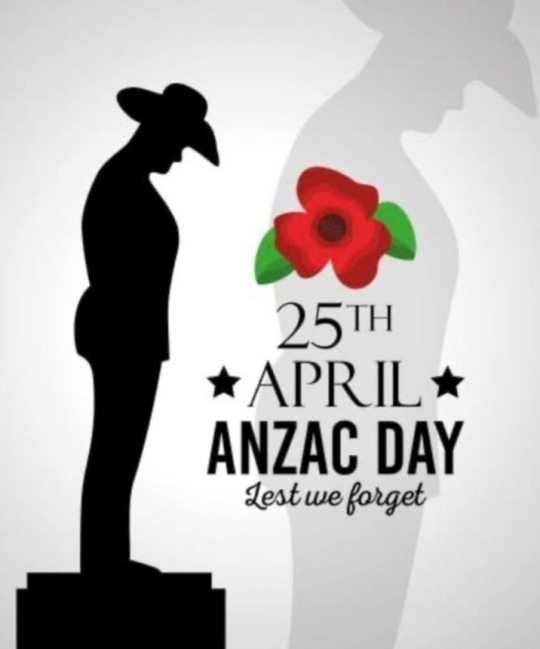
April 25 is the national day of commemoration of Australia and New Zealand for victims of war and for recognition of the role of their armed forces.
It marks the first major military action fought by Australian and New Zealand forces during the First World War.
ANZAC stands for Australian and New Zealand Army Corps.
The soldiers in those forces became known as ANZACs.
Anzac Day is a commemoration of the anniversary of the landing of Australian and New Zealand troops on 25 April 1915 at Gallipoli, Turkey.
When Great Britain declared war against Germany for its invasion of Belgium in 1914, Australia and New Zealand, as Dominions within the British Empire, regarded themselves automatically also at war.
At dawn on 25 April 1915, the first of approximately 70,000 soldiers from the Allies landed at Gallipoli.
The objective was to drive through to Istanbul, take Turkey out of the war, and to provide supplies to Russia in its fight against Germany.
Out of these 70,000 soldiers, more than 20,000 were Australian and New Zealand soldiers.
What had been planned as a bold stroke became a stalemate after the invading troops failed to reach their objective on the first day.
For the next eight months, they clung to the land they had captured, before eventually withdrawing at the end of 1915.
After both sides had suffered heavy casualties, the Allied forces were evacuated.
It is estimated that 8,700 Australian and 2,700 New Zealanders were killed.
One year later, in 1916, the first anniversary of the landing was observed in Australia, New Zealand, England, and by troops in Egypt.
That year, April 25 was officially named ‘Anzac Day’ by Acting Australian Prime Minister George Pearce.
Today, we speak of an ‘Anzac tradition,’ meaning the ideals of courage, endurance and mateship that are still relevant to this day.
#Anzac Day#Anzac Day 2024#Australia#New Zealand#April 25#25 April 1915#George Pearce#World War I#Gallipoli#Turkey#Allied Forces#Lest We Forget#remembrance#commemoration#military action#Australian and New Zealand Army Corps#ANZAC#ANZACs
8 notes
·
View notes
Photo

In 1915, the Allies attacked the Ottomans in the Dardanelles Strait with Constantinople as their objective. A month later British, French, Australians and New Zealanders landed on the Gallipoli peninsula. It is a failure and the Allies will evacuate in January 1916.
by @LegendesCarto
65 notes
·
View notes
Text
The Best 48 Hours of Meghan Markle's LIE, I meant Life:
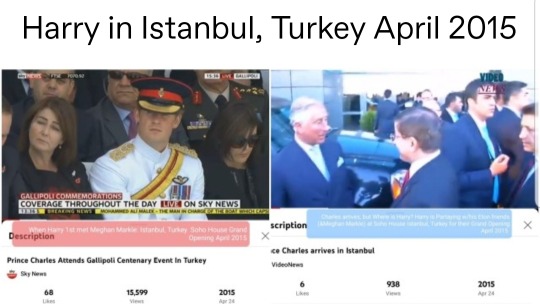

#meghan markle#prince harry#revenge#tom bower#sussex#istanbul#istanbul turkey#turkey#violet#soho house#lies#liars#misha#Gallipoli#2015#April 2015
88 notes
·
View notes
Text

Phew they made it to the beach’s….what else can go wrong
Honestly yeah where the hell are they
Next Page/Previous Page
New to Dardanelles you can stare reading it here
#comic#ww1#anzac#webcomic#war comics#gallipoli#art#artists on tumblr#Art of Toppyflygon#TF-Dardanelles#Toppyflygon Ocs
8 notes
·
View notes
Text

snowwwwwyyyyy
15 notes
·
View notes
Text
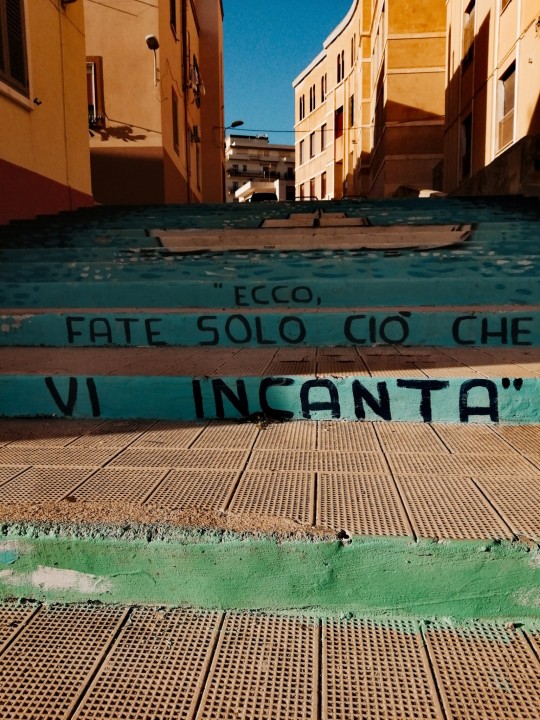

Ecco, fate solo ciò che vi incanta. 📍 Gallipoli
#catastrofeanotherme#street art#gallipoli#salento#fate ciò che più vi incanta#frase#arte#street#art#foto mie
17 notes
·
View notes
Photo
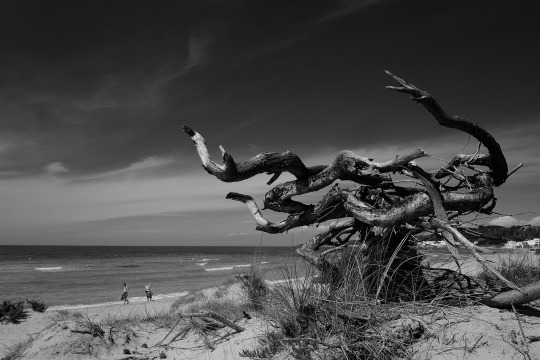
“Every man has his secret sorrows which the world knows not; and often times we call a man cold when he is only sad.” – Henry Wadsworth Longfellow
“Ogni uomo ha i suoi dolori segreti che il mondo non conosce; e spesso chiamiamo freddo un uomo quando è solo triste.” – Henry Wadsworth Longfellow
© Kevin Charles Ward
FIRST IMPRESSIONS
ITALIAN STREET PHOTOGRAPHY
BY KEVIN CHARLES WARD
Watch this video now
74 notes
·
View notes
Text

Gallipoli battlefield cemetery statue of a Turkish soldier carrying a wounded ANZAC soldier, "As the cries of the wounded continued and the hot sun rose the ANZACs were moved to pity. They had never seen such bravery before. A truce was arranged and Anzacs and Turks together helped to bury the dead. (A.K. Macdougall, Australia inH Hstory: Gallipoli and The Middle East)
Soon hundreds of people will be honoring their grandfathers who have lost their lives in our lands. They will commemorate their lives and remember them with the first sunlight.
Dear grandchildren of brave and kind ANZAC soldiers, you are always welcome here, you have our respect and love, from the bottom of our hearts.
When we covered Gallipoli wars in our schools during history lessons, we always loved hearing stories between Johnies and Mehmets. Never once we regarded them as enemies, and we still do not. They have always had a special place in our hearts. Still do, ANZAC soldiers were not our enemy.
As Ataturk said:
"Those heroes that shed their blood and lost their lives …
You are now lying in the soil of a friendly country. Therefore rest in peace. There is no difference between the Johnnies and the Mehmets to us where they lie side by side in this country of ours.
You, the mothers, who sent their sons from far away countries, wipe away your tears.
Your sons are now lying in our bosom and are in peace. After having lost their lives on this land they have become our sons as well.”
❤️
53 notes
·
View notes
